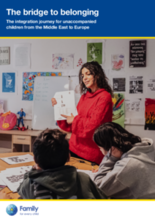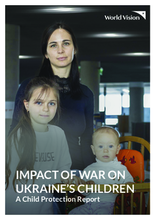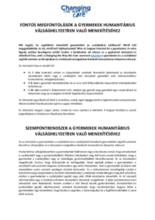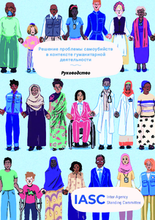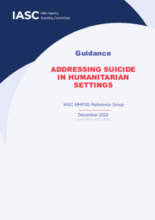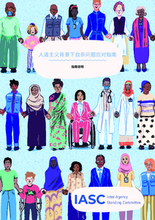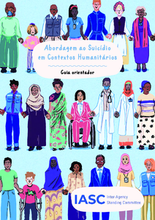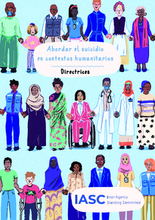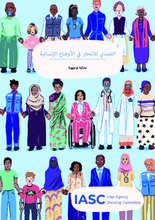Displaying 61 - 70 of 496
This report examines what happens after unaccompanied children have arrived at their European destinations and is based on interviews with key informants, a literature review, and research in three sites (Lebanon, Greece and Germany). What does it mean to integrate into a new society when you are a child on your own? How do they face the challenges of building an identity without their families, process the violence and dangers of their journeys, and face a new situation that may not be as welcoming or straightforward as they had expected?
Since 24 February, 7.5 million children from Ukraine1 have been victims of the largest human displacement crisis in the world today, with lasting consequences for generations to come.
Ezt az útmutatót azoknak a szolgáltatóknak állítottuk össze, akik gyermekekkel, családokkal és elszakított gyermekekkel foglalkoznak, válaszul a jelenlegi ukrajnai és környező országok humanitárius helyzetére.
Это руководство направлено на оказание поддержки исполнителям программ, координаторам и другим гуманитарным организациям в борьбе с самоубийствами и членовредительством в гуманитарных условиях.
This guidance note aims to support programme implementers, coordinators, and other humanitarian actors in addressing suicide and self-harm in humanitarian settings.
本指导说明旨在支持项目实施者、协调员和其他人道主义行为者解决人道主义环境中的自杀和自残问题。 它汇集了范围广泛的方法、工具、参考资料和案例示例。 它是一种实用而简洁的资源,适用于所有类型的紧急情况、组织和部门。
Esta nota de orientação visa apoiar os implementadores de programas, coordenadores e outros atores humanitários na abordagem do suicídio e da automutilação em contextos humanitários.
Esta nota de orientación tiene como objetivo ayudar a los implementadores de programas, coordinadores y otros actores humanitarios a abordar el suicidio y las autolesiones en entornos humanitarios. Reúne una amplia gama de enfoques, herramientas, materiales de referencia y ejemplos de casos. Es un recurso práctico y conciso aplicable a todo tipo de emergencias, organizaciones y sectores.
تهدف هذه المذكرة التوجيهية إلى دعم منفذي البرنامج والمنسقين والجهات الفاعلة الإنسانية الأخرى في معالجة الانتحار وإيذاء النفس في الأوضاع الإنسانية. إنه يجمع مجموعة واسعة من الأساليب والأدوات والمواد المرجعية وأمثلة الحالة.
Esta nota de orientação visa apoiar os implementadores de programas, coordenadores e outros atores humanitários na abordagem do suicídio e da automutilação em contextos humanitários.

